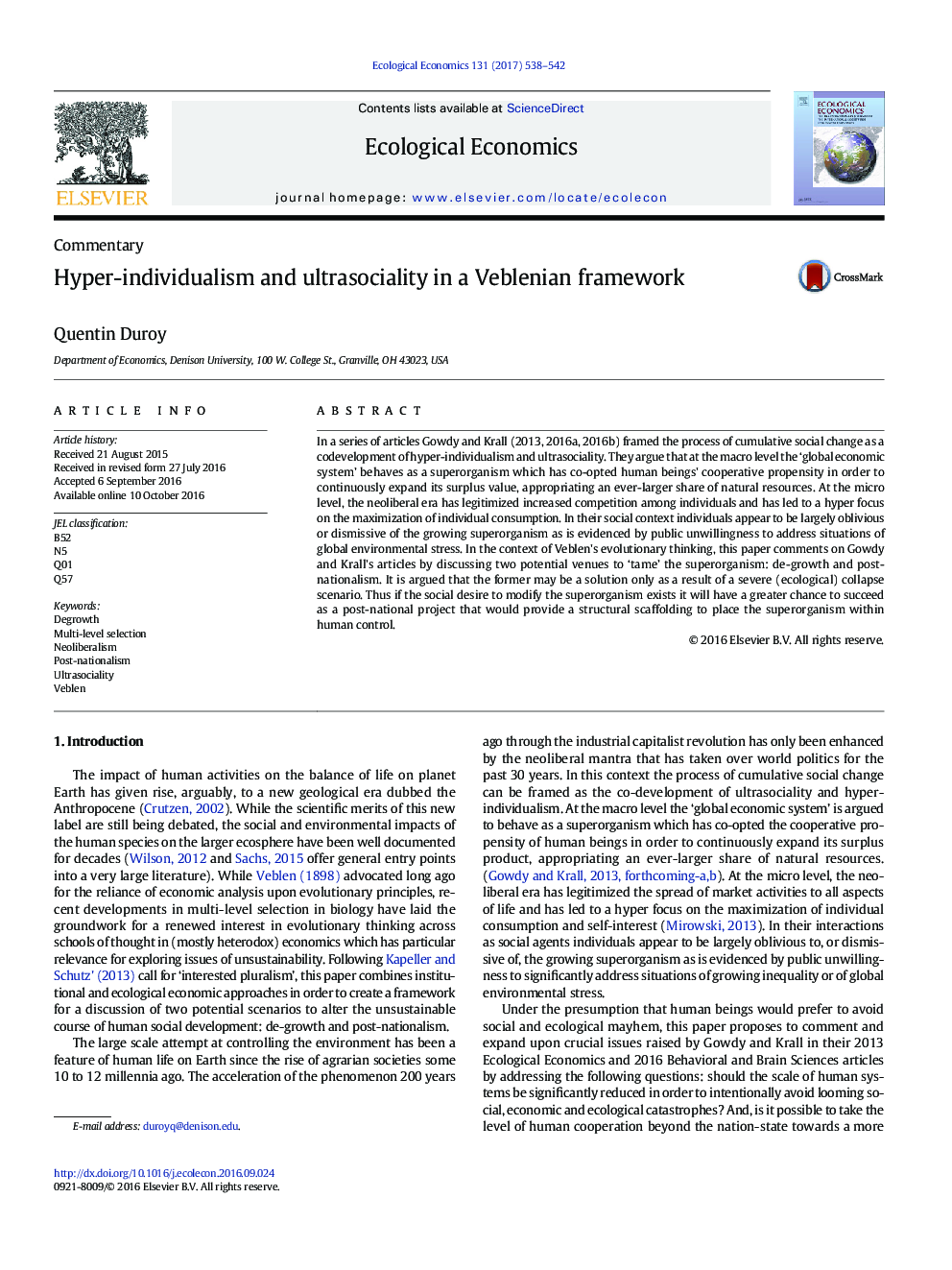| Article ID | Journal | Published Year | Pages | File Type |
|---|---|---|---|---|
| 5048847 | Ecological Economics | 2017 | 5 Pages |
In a series of articles Gowdy and Krall (2013, 2016a, 2016b) framed the process of cumulative social change as a codevelopment of hyper-individualism and ultrasociality. They argue that at the macro level the 'global economic system' behaves as a superorganism which has co-opted human beings' cooperative propensity in order to continuously expand its surplus value, appropriating an ever-larger share of natural resources. At the micro level, the neoliberal era has legitimized increased competition among individuals and has led to a hyper focus on the maximization of individual consumption. In their social context individuals appear to be largely oblivious or dismissive of the growing superorganism as is evidenced by public unwillingness to address situations of global environmental stress. In the context of Veblen's evolutionary thinking, this paper comments on Gowdy and Krall's articles by discussing two potential venues to 'tame' the superorganism: de-growth and post-nationalism. It is argued that the former may be a solution only as a result of a severe (ecological) collapse scenario. Thus if the social desire to modify the superorganism exists it will have a greater chance to succeed as a post-national project that would provide a structural scaffolding to place the superorganism within human control.
